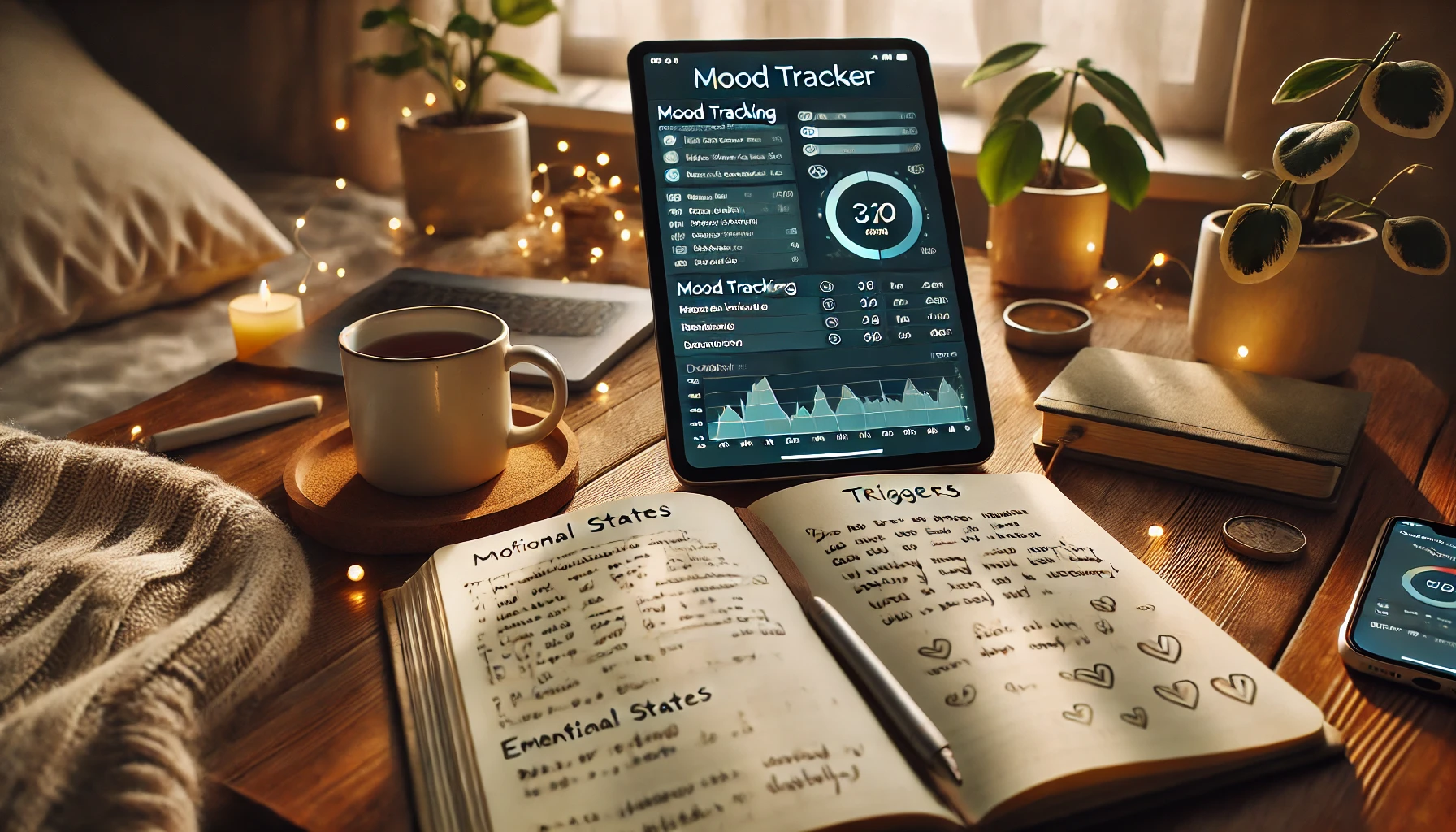Incorporating a habit tracker into your daily routine can be a transformative tool for life optimization, helping you achieve significant productivity enhancement and personal growth. With over 155+ suggestions provided in our comprehensive list, categorized into Personal, Beauty, Healthy, Personal Development, Budgeting, Cleaning, Relationships, Social Media, Work, Study, Blogging, Pet, and Kids Trackers, these tools can help you attain self-awareness and track your progress steadily. Here’s an introduction to 11 impactful habits you should consider including in your monthly tracker.
![]()
Habit formation is key to long-term success, and by beginning with a few monthly habits like early rising, mood tracking, or exercise routines, you’re laying the groundwork for significant life improvements. On average, it takes 66 days to build a habit, but with persistence, you can achieve lasting change. Monitoring habits such as water consumption, financial habits, and daily routines not only provides tangible evidence of progress but also supports better decision-making and productivity enhancement. Starting small, perhaps with 2-8 habits, can prevent feeling overwhelmed while still bringing about noticeable improvements. Habit tracking doesn’t have to be costly; simple pen and paper methods, creatively customized, can be just as effective.
Whether you’re aiming to maintain a consistent skincare routine, manage expenses better, or improve your overall wellness, including these practices in your monthly habit tracker can pave the way to a more structured and fulfilling life.
Water Consumption
Tracking your daily water intake is essential for maintaining optimal health and overall well-being. Staying hydrated supports numerous bodily functions, making it an integral part of any health-oriented habit tracking system. Implementing a water tracker can be a practical approach to ensure you meet your daily hydration needs.

The Importance of Hydration
Maintaining proper hydration is critical for physical performance, cognitive function, and overall mood. Drinking the recommended 8 cups or approximately 2 liters of water daily can significantly influence your energy levels and concentration. Dehydration, which affects over 75% of Americans, can lead to fatigue and difficulty focusing. Besides, drinking water throughout the day aids in preventing chronic diseases and supports healthy skin.
Methods to Track Your Daily Intake
Several creative techniques can assist in tracking your daily water intake. Whether you prefer traditional methods or digital tools, the options are plentiful. Utilizing a Bullet Journal to note the number of glasses or milliliters consumed can be both fun and effective. Alternatively, water-tracking apps provide reminders and visual representations of your consumption patterns. Moreover, setting alarms, linking water intake to meals, or carrying a stylish reusable water bottle can bolster your hydration habit tracking.
Benefits of Staying Hydrated
The benefits of consistent hydration are extensive. Regular water consumption aids in weight management by promoting satiety and boosting metabolism. It also helps in physical recovery post-exercise and maintains kidney function. Furthermore, drinking water can improve your mental clarity, enhance mood, and combat fatigue. By diligently tracking your water intake, you can reap these hydration benefits and establish a lifelong habit of staying hydrated.
Exercise Routine
An exercise routine is fundamental for maintaining physical health and can be effectively monitored through a habit tracker. During a 30-day habit experiment, consistent daily exercise emerged as a crucial tracked habit, underscoring the importance of regular physical activity logging. Various forms of physical activities, such as gym sessions, yoga, running, or even home exercises, can be incorporated and marked on a daily or weekly basis.

Implementing daily exercise is more likely to result in habit formation compared to less frequent sessions. Starting with shorter durations, such as 20 minutes or even 10-15 minutes, can prevent burnout and promote the development of sustainable exercise habits. Gradually increasing workout length, beginning with 30 minutes and progressing to an hour, aids in cementing these habits. Mixing up exercise routines, such as incorporating different sports, can make daily exercise more enjoyable and prevent overworking specific muscle groups.
Tracking physical activities daily, such as workouts, can be motivating and offer a visual representation of one’s dedication to staying active. Additionally, recording fitness progress by logging measurements monthly provides tangible evidence of advancement. Utilizing a habit tracker to monitor various health indicators like exercise habits is supported by scientific evidence, suggesting improved results through consistent tracking.
Participants in the study also highlighted completed habits after consistent implementation over three weeks, showcasing the benefit of frequent tracking. For those incorporating rest days, it’s essential to maintain a weekly routine to ensure muscle recovery and continuous habit formation. By setting small, achievable goals and using detailed habit trackers, individuals can more easily maintain their exercise routines and stay motivated to achieve their fitness goals. Reviewing weekly tasks, such as planning and tracking exercise routines, can further aid in managing daily activities effectively.
Caloric Intake
Maintaining a balanced caloric intake is crucial for weight management and overall well-being. By focusing on caloric goals tracking, you can better manage your dietary habits and ensure you’re meeting your nutrition needs. A reduction of 500 calories per day is often recommended for a weight loss of around 1 pound (450 grams) per week. To achieve this, setting daily and monthly caloric goals is essential.
Setting Daily and Monthly Caloric Goals
Start by calculating your Total Daily Energy Expenditure (TDEE) using the Mifflin-St. Jeor equation, which takes into account factors like activity level. Once you have determined your TDEE, you can set a personalized calorie goal on a monthly basis to ensure consistent tracking and adjustment. A common recommendation for weight loss is a balanced 1,500-calorie diet. For example, each meal in a 1,500-calorie plan can consist of approximately 500 calories. This type of diet helps adults achieve a calorie deficit without drastic measures, supporting sustainable weight loss.
Daily targets should ensure nutrient needs are met to avoid deficiencies. Most adult females need between 1,600 and 2,000 calories per day, while males require between 2,000 and 2,400 calories. To lose 1 pound per week, cutting 500 calories daily is advised. For losing 2 pounds per week, a reduction of 1,000 calories daily is recommended.
For more information on creating a balanced 1,500-calorie meal plan, check out this detailed guide and sample plans.
Using Habit Trackers for Diet Adherence
Utilizing a habit tracker can significantly improve diet adherence. This tool helps you monitor your meals and control portions, ultimately promoting a healthier lifestyle. By tracking your nutrition monitoring, you increase the chances of staying on course with your dietary objectives. Consider habit tracker ideas such as tracking meal times and portion sizes for effective diet adherence.
Incorporating high-fiber and high-protein foods into your meals can also assist in managing cravings and preventing overeating. Protein is considered the most satiating macronutrient, making it essential for those aiming to reduce caloric intake. Drinking water before meals and eating soups can lower calorie intake, contributing to your caloric goals tracking efforts.
For more ways to optimize your calorie reduction efforts, refer to this comprehensive resource.
![]()
Ultimately, a habit tracker serves both as a motivational tool and a practical method to manage one’s diet effectively. Start with a personalized calorie goal and seek advice from healthcare providers or dietitians for sustainable weight loss. For a more detailed example of what a 1,500-calorie day looks like, visit this example meal plan.
Healthy Eating Habits
Maintaining healthy eating habits is crucial for overall well-being and can be effectively monitored through a habit tracker. By focusing on planning balanced meals and tracking nutrient intake, individuals can better manage their dietary habits and ensure they’re meeting their nutrition needs.
Planning Balanced Meals
Planning balanced meals is essential for maintaining a healthy diet. By incorporating a habit tracker into your daily routine, you can ensure that you’re consuming a variety of nutrient-dense foods. Start by calculating your daily caloric needs and macronutrient requirements. Then, plan your meals accordingly, making sure to include a balance of protein, healthy fats, and complex carbohydrates. Use your habit tracker to log your meals and snacks, and make adjustments as needed to stay on track.
A well-structured meal plan can prevent impulsive eating and help you stick to your dietary goals. For instance, you can use your habit tracker to note down breakfast, lunch, dinner, and snacks, ensuring each meal is balanced and nutritious. This practice not only supports weight management but also enhances overall health by providing your body with the necessary nutrients.
Tracking Nutrient Intake
Tracking nutrient intake is a valuable tool for ensuring that you’re meeting your dietary needs. By using a habit tracker to log your food intake, you can identify patterns and trends in your eating habits. This can help you make informed decisions about your diet and make adjustments to optimize your nutrient intake. Consider tracking your daily intake of essential vitamins and minerals, such as vitamin D, calcium, and iron. You can also use your habit tracker to monitor your consumption of healthy fats, protein, and complex carbohydrates.
Habit trackers can provide immediate feedback on your dietary habits, helping you stay organized and focused on your nutrition goals. For example, if you notice a deficiency in a particular nutrient, you can adjust your meal plan to include more foods rich in that nutrient. This proactive approach ensures that your diet remains balanced and supports your overall health.
Sleep Patterns
Understanding and maintaining healthy sleep patterns is crucial for both cognitive functions and overall health. Lack of sleep can have severe consequences, affecting mood, creativity, and physical well-being. Regular sleep tracking helps identify and correct improper sleep habits, contributing to quality rest and better lifestyle choices.
Tracking bedtime and wake-up time
Sleep tracking involves recording your bedtime and wake-up times daily. This data offers insights into your sleep habits analysis by highlighting patterns and inconsistencies. For instance, noticing a trend of late nights and groggy mornings can prompt adjustments in your schedule. Tracking these times not only helps in finding an optimal sleeping schedule but also in securing the number of hours necessary for feeling genuinely rested.
Understanding sleep quality
Recording sleep quality is another fundamental aspect of sleep tracking. By evaluating factors such as how many times you wake up during the night and your overall sleep satisfaction, you can identify which conditions facilitate a quality rest. Connecting with other trackers, such as mood and productivity, can further aid in comprehending the full impact of sleep quality on various dimensions of daily life. Sufficient sleep not only strengthens your immune system but also helps regulate weight and appetite, thereby leading to improved health outcomes.
Personal Growth Activities
Incorporating activities such as gratitude journaling and daily affirmations can significantly enhance your mental well-being and contribute to overall personal development. These practices are not only simple but also powerful in fostering a positive mindset and reinforcing self-belief.
Keeping a Gratitude Journal
By maintaining a gratitude journal, individuals are able to reflect on daily blessings, which promotes a positive outlook on life. Gratitude journaling helps you shift focus from what you lack to what you have, improving emotional well-being. Including this habit in your monthly tracker, as endorsed by Silk + Sonder, can ensure regularity and maximize its benefits. Small, consistent actions like gratitude journaling align with the concept of ‘atomic habits’ and can lead to significant personal growth.

In an analysis of habit ideas for personal growth, tracking simple activities like making the bed daily, reading for 20 minutes, or sending thank you notes can be concrete steps towards establishing a gratitude practice. Building gratitude journaling into your daily routine is a small but effective way to enhance personal development.
Daily Affirmations
Positive affirmations are another effective tool for personal development. By incorporating daily affirmations into your routine, you can fortify self-belief and motivation. Affirmations work by reprogramming your mind to focus on your strengths and positive qualities. Habit trackers can be particularly useful in ensuring consistency in practicing these affirmations, thereby making them more impactful.
Psychologists affirm that personality is flexible and can evolve over time. Engaging in activities like gratitude journaling and daily affirmations supports this evolution by fostering better ways of thinking, feeling, and behaving. According to research on habit ideas for personal growth, habit stacking, finding an accountability buddy, and giving oneself rewards are strategies that can reinforce these positive practices.
Integrating these activities into your daily routine is an essential step towards achieving holistic personal development. As you continue on this journey, regular practice and tracking can lead to profound changes in your mental outlook and overall well-being.
Work on a Hobby
Integrating hobby tracking within your habit tracker is a wonderful way to ensure your personal interests and skill development don’t get overshadowed by daily responsibilities. Regular engagement in hobbies has been shown to reduce stress and foster creativity. By logging time spent on creative pursuits, individuals can balance productivity and leisure seamlessly.
Starting with tracking 2-8 hobbies is recommended to avoid feeling overwhelmed. This method provides a nearly scientific approach to habit formation, giving users the ability to monitor progress and adjust their routines accordingly. Whether it’s painting, writing, gardening, or any other passion, making a habit of your hobbies ensures they become a consistent part of your life.

Using symbols like checkmarks or Xs in a habit tracker for creative pursuits logging makes it simple to see at a glance how often you’ve engaged with your hobbies. Over time, this can help reveal patterns and insights, fostering better time management and personal growth. Don’t let your hobbies take a backseat; track them diligently to make time for what truly brings you joy and fulfillment.
Monitor Mental Health
Monitoring mental health is crucial for maintaining overall well-being. Implementing habits such as mood tracking and daily journaling can significantly enhance emotional awareness and resilience. By consistently noting mood changes and any related triggers, individuals can gain valuable insights into their mental health patterns, enabling them to proactively address potential issues.

Tracking mood changes
Effective mood tracking involves rating stress levels on a 1-10 scale, which highlights behavioral changes necessary for improved well-being. Apps like the Fitbit app and MoodCast allow users to rate their moods and identify triggers affecting their emotional state. Monitoring your mood can help pinpoint whether eating 5 servings of fruits and veggies or spending 10 minutes outside positively impacts your mental health.
Journaling one sentence daily
Incorporating daily journaling into your routine is a simple yet powerful mental health monitoring tool. Writing just one sentence each day can facilitate reflection and serve as an effective stress management technique. This practice, as observed in apps like Daylio, functions as a journal while enabling users to track their habits and emotional trends. Engaging in such a habit can lead to a comprehensive understanding of your mental health journey, similar to the benefits gained from other commonly tracked habits, like maintaining proper hydration or engaging in 30 minutes of movement daily.
To explore more about how keeping a diary and mood tracker can be integrated for better mental health management, check out additional resources and user-loved trackers. Consistent recording not only aids in uncovering triggers but also enhances emotional regulation over time.
Track Your Medications
For those with health conditions requiring medication, tracking your medication intake is crucial. Habit tracking serves as a visual cue to prompt action, and it plays a significant role in ensuring medication adherence. This practice is essential for maintaining a consistent treatment regimen and improving health outcomes.
Research indicates that habit tracking can significantly impact success rates for achieving goals. Studies show that people who monitor their progress on goals like weight loss and smoking cessation are more likely to make positive improvements. Similarly, tracking daily doses of medication can help ensure that you don’t miss important doses and maintain consistent prescription tracking.
Immediate feedback from habit tracking can offer a sense of fulfillment. For instance, recording your successes, like checking off completed tasks or marking daily doses log, can provide satisfaction and encourage continued compliance with medication schedules.
Incorporating prescription tracking into your daily routine is recommended. It is more effective to focus on tracking a few essential habits consistently rather than sporadically monitoring numerous behaviors. The Two-Minute Rule can also be instrumental in ensuring daily consistency in tracking efforts, by breaking down the habit to take two minutes or less to perform.
Several apps can assist with effective medication tracking. For instance, Medisafe provides medication interaction alerts, and MyTherapy offers printable health reports to share with your doctor. Apps like Mango Health even reward you with points for remembering to take daily doses.
In conclusion, maintaining a habit tracker for your medications can play a vital role in your health management, foster a sense of accomplishment, and ensure medication adherence and effective prescription tracking.
No Money Spent
The “No Spend” challenge is gaining momentum as people look to reassess their spending habits, particularly after the holiday season. This trend often begins in January, with individuals committing to reduced expenses and heightened financial tracking as a form of financial discipline.
Financial Discipline and Savings
Embarking on a “No Spend” challenge requires a strategy that involves restricting purchases to essential items only. This focus on necessity over impulse helps in saving money while enhancing financial discipline. For instance, relying on pantry goods and essential groceries eliminates the need for additional spending on non-essential items. By tracking resisted temptations, individuals can monitor impulse purchases and improve their self-control, ultimately contributing to significant savings throughout the challenge.
Recording Daily Expenses
An essential part of the “No Spend” challenge is recording daily expenses to gain a thorough understanding of one’s spending habits. Maintaining an expense tracker, such as The Savvy Budget Tracker, enables individuals to evaluate where their money is going and identify opportunities for cost-cutting. Even essential spends are noted to ensure comprehensive financial tracking. This meticulous record-keeping not only aids in saving money but also fosters a habit of long-term financial responsibility and strategic spending.
Productivity Metrics
Monitoring productivity metrics is essential for maintaining an efficient and organized workflow. By utilizing habit trackers to manage daily work priorities and achieve inbox management, individuals can significantly improve their productivity levels.
Setting Daily Work Priorities
Setting daily work priorities is crucial for task prioritization and ensuring that essential tasks are completed on time. By integrating this practice into a habit tracker, individuals can keep track of their priorities each day, facilitating better productivity improvement. Not only does this help in organizing tasks efficiently, but it also reduces the stress associated with managing workloads.
Maintaining Inbox Zero
Maintaining an inbox zero status is another vital component of effective productivity management. By regularly clearing out and organizing your email inbox, you can prevent overwhelming backlogs and stay focused on important communications. Habit trackers can be employed to monitor and sustain inbox management efforts, leading to improved clarity and efficiency in daily operations.
Conclusion
Throughout the habit tracking journey, the key to making enduring changes lies in the reflective realization of growth patterns across various life facets. The simple yet consistent act of habit tracking can unlock profound compound benefits over time. By considering these 11 monthly habit ideas, individuals can embark on a systematic path to enhance health, productivity, personal growth, and fiscal responsibility.
One crucial aspect is the practice of setting 1-3 big year goals, which can then be broken down into 4 smaller quarterly goals. This method ensures continuous progress and keeps you motivated to achieve your objectives. For detailed insights, you may refer to the importance of setting monthly goals.
Personal achievements like having a baby, losing 70 lbs, paying off $20k in credit card debt, and doubling income in the same year are testament to the power of well-structured goals and consistent habits. Action steps like listing new items in your Etsy shop, promoting on social media, and reaching out to influencers can be pivotal for success. Starting with a big aim and breaking it down can make the goal-setting process more manageable and effective.
The challenge of sticking to resolutions by February or March is common, yet achievable with discipline. Up to 40% of our actions are driven by habit, due to the brain’s tendency to conserve energy, highlighting the importance of developing good habits. For additional advice on building healthy habits, check out the benefits of spending time outdoors and the necessity of a healthy sleep routine. Emphasizing habit tracking benefits can significantly aid in maintaining and enhancing your lifestyle improvement techniques.
By leveraging the power of discipline and incorporating goal-oriented practices, you can foster an enhanced life filled with productivity and meaningful growth. Dive deeper into how daily habits shape success by exploring productive daily routines and utilizing habit trackers as invaluable tools for achieving your aspirations.
FAQ
What is a habit tracker?
A habit tracker is a tool used to monitor and analyze daily or weekly habits to foster self-awareness and promote positive habit formation. It can be as simple as a paper chart or a section within a bullet journal.
How can habit trackers aid in productivity enhancement?
By keeping track of daily tasks and setting clear goals, habit trackers help maintain focus, prioritize activities, and reduce procrastination. This structured approach leads to improved productivity and time management.
What are some effective methods for tracking water consumption?
Effective methods include noting down the number of glasses consumed or using checkmarks in a habit tracker graph. Some also use apps designed specifically for tracking hydration.
Why is it important to monitor exercise routines?
Monitoring exercise routines ensures consistency and helps in staying motivated. It also provides a visual representation of progress and dedication towards fitness goals, promoting a healthier lifestyle.
How does tracking caloric intake contribute to better dietary habits?
Tracking caloric intake assists in maintaining a balanced diet by setting daily and monthly goals. It helps manage portion sizes, ensures dietary adherence, and ultimately supports weight management and overall well-being.
What are the benefits of tracking sleep patterns?
Tracking sleep patterns helps identify sleep quality and duration, revealing habits that may affect rest. Making informed adjustments can improve cognitive functions and general health, emphasizing the importance of good sleep hygiene.
How can personal growth activities like gratitude journaling and daily affirmations enhance well-being?
Gratitude journaling allows individuals to reflect on daily blessings, fostering a positive mindset, while daily affirmations reinforce self-belief and motivation. Regular practice tracked through a habit tracker ensures these benefits are consistently realized.
Why is it important to allocate time for hobbies?
Allocating time for hobbies and marking it in a tracker ensures personal interests and skills development are not sidelined. This practice is associated with stress reduction and increased creativity, contributing to a balanced and fulfilling life.
How does tracking mental health habits enhance emotional awareness?
By noting down mood changes and journaling daily, users can identify emotional patterns and triggers. This reflective practice, supported by habit tracking, promotes greater emotional awareness and well-being.
Why is medication adherence critical, and how can habit trackers help?
Medication adherence is crucial for maintaining a consistent treatment regimen and ensuring the effectiveness of prescribed medicines. Habit trackers help individuals keep track of their doses, preventing missed medications and supporting better health outcomes.
How can tracking ‘no money spent’ days contribute to financial discipline?
Recording days with no expenses helps individuals recognize their spending patterns and encourages cost-cutting. Visualizing this habit through a tracker promotes financial responsibility and aids in increasing savings over time.
What productivity metrics can be effectively monitored through habit trackers?
Productivity metrics such as setting daily work priorities and maintaining an ‘inbox zero’ status can be tracked. This practice supports task prioritization, reduces stress levels, and enhances overall personal efficiency.

More Posts
More Productive at Night? 5 Reasons You Should Know
Remote work has made us realize something interesting. Some people find they do their best work at night. They’re called “night owls.” They’re more creative, focused, and efficient in the wee hours. A...
10 Skills You Need for Delegative Leadership
Ever wonder how some leaders manage to inspire teams to deliver results without constantly hovering over them? That’s the essence of delegative leadership, a hands-off approach where leaders trust their teams to take...
50 Habits of Successful People You Should Adopt
Ever wondered what it takes to be a successful person in life? It might be subjective to answer, but there are a few things that we certainly can point out and utilize in...
Why Are All The Top Companies Using OKR’s?
When we talk about OKR’s, the first thing that comes to our mind is whether all the top companies using [OKR’s ](https://weekplan.net/okr-software)or not and if they are using it, what is the key...